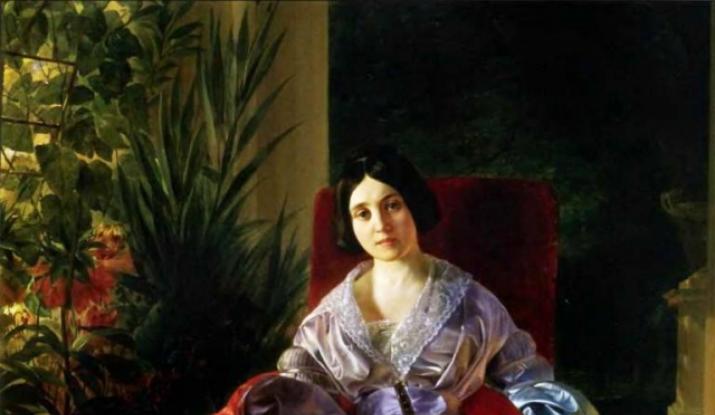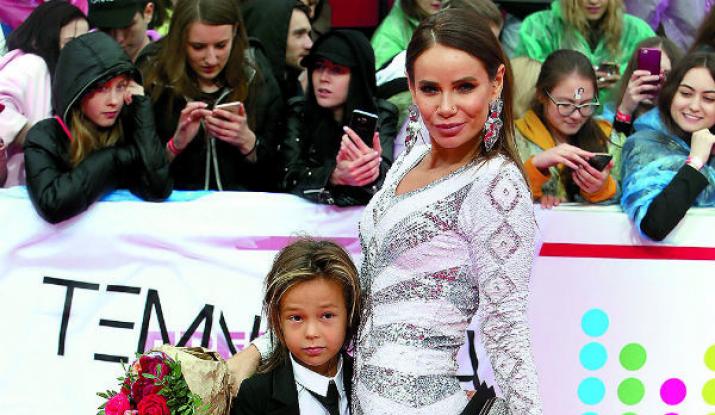Tatar folk holidays
Gusmanova Gulnaz Gumerovna, defectologist (Co-author Vakhitova L.V.)
Goal: The formation of children's feelings of patriotism and love for their homeland, the desire to preserve and enhance the cultural heritage.
Tasks:
educational:to acquaint students with the history and content of Tatar folk holidays - “Kaz өmәse” (goose holiday), “Aulak өy” (village gatherings), “Harga Botkasy” (Grach’s porridge);
developing:through a theatrical event to promote the formation of students' skills and free communication skills in the Tatar language;
educational:to contribute to the manifestation by students of their creative activity, the education of an aesthetic culture.
Event progress
Leading:Each nation has its own national holidays. Many of these holidays were born in antiquity - several centuries or even a thousand years ago. Everything around: villages and cities, things, professions, nature are changing, and public holidays continue to live. Tatar folk holidays delight people with gratitude and reverence for nature, for the customs of their ancestors, for each other.
Tatars have two words that mean holiday. Religious holidays are called the word gaet (aet) (Uraza gaite is the feast of fasting and Korban gaite is the holiday of sacrifice). And all the folk holidays in Tatar are called beirem.
Today we will bring to your attention excerpts of the three national holidays “Kaz өmәse”, “Aulak өy”, “Harga Botkasy”. Among the holidays of the autumn-winter season among the Tatars, the goose holiday (“Kaz omes”) stands out. All the great deeds of the Tatars were carried out by the whole world. “Өмә” in Tatar means to help. “Kaz өmәse” was carried out later in the fall, when fields and forests were covered with snow, rivers were frozen in ice.
Young people were looking forward and preparing for this holiday. Girls embroidered aprons and towels, sewed dresses, knitted shawls, because at this holiday she could meet her fiancée.
The girls were plucking the killed geese, laying down feathers in one direction and fluff in the other. The cleaned carcasses were hung from the rocker arms and went to the spring. At the spring, they washed the geese with sewage. But the most joyful was that at the spring they were already waiting for the village guys with harmonica and songs.
Enter girls with basins in their hands, in the basins of geese (to the music"Kaz ropes"
)
Regina:
Begen abyss kaz өмәсе,
Kaz өмәсе бүген дә.
Kaz yolkyrga kilgen kyzlar,
Uңysh yuldash bulsyn segә.
Collaboration, games and fun
There are a goose holiday.
Going girls and boys
Rejoicing together.
The girls sit on the bench, a guy enters, he says ditties: “Eh, almagachlary” (during the ditties, a goose dance is performed)
“Ah, almagachlary”
1.Kaz yolkuchi matur kyzlar
Tөselep utyrgannar,
Kullaryna kүz tiyarma?
Bigigerk tә uңgaңnar.
Ah, almagachlars, saury sandugachlars
Saury, saury, saury
Sagyndyr bashlad.
2. All the guys in our school
Don't take your eyes off you
Min dә segә җyrlap birәm,
Shundy Ugan Bulgana!
3.Kazlarygiz mamykka
Tөshә kүrmәsen berүk,
Kiyagg chygarga tours
Keeler segә byeluk.
Goose dance while losing
4.Kyzlar Kyrlap kazlar yolky
Kanatlaryn өzderep,
Kөyantәlәrne asyp
Suga bar tөzelep (all the girls take the pots with the geese and leave with the guy).
Leading: In the evening, dressed in festive dresses, the girls gathered for gatherings. The hostess met them with national dishes, prepared belesh from goose paws and wings, a delicious soup from a whole goose. Young people played various games, one of them being “Kaz ropes”.

The game "Kaz ropes". The guys stand in a circle, pass the goose feather to each other to the music, the music stops, who has the feather in his hands, he drops out. The remaining player receives a prize - a handkerchief.
Leading:Long winter evenings in the villages were gatherings "Aulak өy."
They sit on the stage: against the background of the Tatar lyric melody, the grandmother spins and sings, and the grandson (Dinar) sits at the computer. The tired granddaughter of Regina comes in from the street.
Regina: Әbi, what are you doing?
Grandmother:Here, kizym, I am preparing yarn, I will knit socks, mittens for you, and you will wear them when the cold comes. Oops, kyzym, we used to carry out Orchik өmәse.
Regina: What is Orchik өmәse? (the grandson sits closer and begins to listen to his grandmother with his granddaughter).
Grandmother: Orchyk өmәse is a holiday that came to us from our ancestors. It is held in the fall. The owners harvested sheep's wool. One autumn evening, everyone gathered in one house, someone was cleaning their wool, someone was spinning yarn, and someone was knitting. In addition to Orchik өmәse, there were village gatherings aulak өy.
Regina: And what were you doing there?
Grandmother: At these gatherings, the girls prepared a dowry for themselves. Sewed, embroidered. (opens the chest) Here are pillowcases embroidered by hand, and this is a girl’s dress. Try it, kizym ( dresses outfits for grandchildren) Also sewed vests, skullcaps, kalfaki. If you want, I will teach you to embroider. It also happened that guys came, and then the youth arranged games.
Dinar: Әbi, and teach us these games.
Grandmother: Well ulim, I will teach, call your friends.
Grandchildren: Kyzlar, malaylar, begeless killegesis, иеbiebez wennar өyrәtә (call your friends).
Girls and boys: Isnmeses!
Grandmother: Isnmeses! Bigger yachts! Let's play a doubles game.
"Plague Urduk" veins (everyone stands in pairs, in the form of a brook, each turned to face his pair).
The game "Plague үrdәk, plague kaz"
Plague үrdәk, plague kaz (hold hands)
Plague үrdәk, plague kaz (hold hands).
Tyrn kүlne yarata shul, yrata (hold hands)
Tyrn kүlne yarata shul, yrata (raise their hands up, make a collar).
Regina үzenә iptәsh ezli (passes into the stream and selects one person in a couple - a boy)
Linna yarata street (then they stand at the end of the brook, and the one who is left without a couple goes to the very beginning of the brook).
Grandmother: Bik yachsha! This ring (shows ring) left from my grandmother. I very much protect him. On gatherings with this ring we played "Jozek Salis" ("Ring"). You sit down in a semicircle and prepare your hands, I have a ring in my hand. Who it will remain, you must guess. Hearing the words: "Yөzek kemdә, yөherep chyk!" ("Little ring, little ring, go out onto the porch!"), who has a ring in his hand, should push out into the middle, and those who are sitting along the edges with him should catch him. If you catch, then we will give him a task (portray some animal, dance, sing, tell a poem).
The game is accompanied by musical accompaniment.

Grandmother: Min szgé wennar өyrәttem, heәser ses, miңa biep kүrsәtez.
Music sounds, children begin to dance the Tatar pair dance.
Grandmother: Bik matur biedegez! Rәkhmәt sezge! (they stop, the grandmother puts everyone in one line, bow and leave)
Leading:The most popular spring holiday of the Tatar people is undoubtedly “Harga Botkasy” (“Rook's Porridge”). In ancient times, people believed that rooks bring spring at the ends of their wings. Therefore, as soon as the snow began to melt and the first streams appeared, a celebration was organized in honor of the arrival of the rooks Harga Botkasy.
Musical accompaniment includes students dressed as rooks.
Danis:
Karga әytә kar, kar!
Thuem Kitte bar, bar.
Kar, Kar, Kar.
Camellia:
Car-Carr! Car-Carr!
Jaz Kitte, balalar!
Matur bәyrәm kөnendә
Bar yes kel acalar. (leave)
Leading:On this day, smart children gathered cereal, milk, butter, sugar, eggs from each house and invited everyone to poems and songs for the holiday.
Musical accompaniment includes guys dressed in national costumes, with a basket walking around the hall, singing the cries: Dinar, Diana, Linar, Aigul, Regina, Elmira
Aigul(addressing everyone):
Isnmeses, saumysys!
Nigә kәҗә saumyısız?
Әtәchegez kүkәy salgan,
Nigә chygyp almysyz?
Elmira(referring to the viewer 1): Tүtәy, bir bezgә kүkәy (viewer 1 gives her eggs).
Lenard:Tүtәy, May, yarma kirәk bezgә (viewer 2 gives him oil, cereals).
Dinar:Shikәr, toz bir tүtәy tizrәk (viewer 3 gives him sugar, salt).
Aigul:Menә duslar bar and bar, botka bik tәmle bulyr.
Everyone rises to the stage and begins to cook porridge
Leading: Everyone gathered in the highest place of the village, made a fire, and made porridge in a large cauldron (boiler). In the meantime, porridge cooked, the children played games.
Aigul: Kizlar, malaylar, botka pawn on unap alabyzma?
All: Ude, uyybyz!
Start playing games:
1 . "Running with an egg on a spoon" (accompanied by musical accompaniment).
2. "Points, points, kargalar points ..." ("Flew, flew, crows flew ..."). Everyone stands in a circle, leading and everyone after him repeats the words “Points, points, kargalar points ...” (“Flew, flew, crows flew ...), showing the flight of wings. That which they fly, they show, and that which does not fly, the disciples let their wings go down. For example, flew, flew, sparrows! (the students wave their “wings”; they flew, they flew, the tables! (the pupils lower their “wings down,” because the tables do not fly).
After the games, everyone again stands around the fire.
Leading: After games and fun everyone was invited to the fire, and the distribution of porridge began. The first portion was given to the earth with the wish of all peace, tranquility and a rich harvest. The second - water (stream), so that the water retains living creatures on earth. The third - to the sky, so that there are many sunny days and rains on time, and the fourth - to the rooks for bringing spring! (rooks fly to the music and carry away the porridge).
Leading:
Kөnnә regez ayaz bulsyn!
- Illәr tynich bulsyn!
- Yaңyrlar yavip, igenәr uңsyn!
- Balalar tәүfyykly bulyp үssen!
We say, “Thank you,
Pupils, teachers
And to all today's guests.
Our duty is to keep traditions,
Ancestral culture to revive.
All participants in the play are built in one line, bow and leave the stage.
Extracurricular activities in grade 3:
"Traditions and holidays of the Tatar people"
Extracurricular activities in the 3rd grade: “Traditions and holidays of the Tatar people”
Goal:
To acquaint children with the customs and traditions of the Tatar people;
Continue instilling in children a sense of pride in their people.
Event progress: A person who does not know the native language,
Native customs and traditions:
Alienated from his nation ...
Dear Guys! Dear guests!
Today we are meeting with you in this room to talk about very important things.Each person has his own small homeland, which he is called upon to protect and preserve. Name your small homeland. Yes, Tatarstan is our small Motherland. And what do you think means to love the homeland? To love the Motherland means to know its history, culture, national traditions and holidays.Today we will get acquainted with some traditions and customs of the Tatar people.
Customs and holidays of the Tatarsoriginated a long time ago, they are an expression of the emotional life of the peoples of Tatarstan. Tatars are very respectful to the history of their people.Customs and holidays of the Tatars are honored and observed to this day. You also know the most favorite Tatar holidays.
Remember which of them you had to participate in? (Sabantuy, Navruz).Many of these holidays were born in antiquity - several centuries or even a thousand years ago. Everything around: villages and cities, things, clothes, professions, nature are changing, and public holidays continue and continue to live ... you know why? Because such holidays are holidays of the heart, the soul of the people. Tatar folk holidays delight people with gratitude and reverence for nature, for the customs of their ancestors, for each other.
The Russian word "holiday" comes from the Old Russian is empty, that is, empty. It turns out that the holiday is an empty, unoccupied time, that is, free from labor and other ordinary activities. Of course, the way it is - it’s not in vain that they say: there are holidays and there are weekdays, ordinary, ordinary days. Tatars have two words that mean holiday. Religious Muslim holidays are called the word gait (Uraza gait is the feast of fasting and Korban gait is the holiday of sacrifice). And all folk, non-religious holidays in Tatar are called beirem. Scientists believe that this word means "spring beauty", "spring celebration." Donation and spring celebration - this is the meaning of the Tatar holiday!
- - Remember what Muslim holidays we celebrated recently?
Religious holidays of Muslim Tatars - Uraza Gaet and Korban Gaet. These days, all men and boys were supposed to perform a collective morning prayer - prayer. Then they go to the cemetery to pray near the graves of their loved ones. And women and girls helping them at this time prepare home treats. On holidays (and each religious holiday used to last for several days), relatives and neighbors went around with congratulations. Particularly important was a visit to the parental home. Whenever possible, they tried to please each other with gifts, refreshments, and had dinner parties. In the days of Korban, they tried to treat as many people as possible to meat, tables were laid for two or three days in a row, and everyone who entered the house, had the right to treat themselves as much as he liked ... These customs are sacred to these days. In addition to religious holidays, there were folk holidays.
- In ancient times, they say, people did not know why spring comes. They thought that rooks would bring spring on their wings. Therefore, as a token of gratitude to the rooks, they arranged the “Harg Botkasy” holiday. Village children sang ditties, inviting adults to the feast. Adults on the river bank began to cook porridge for the whole village, sang songs, played different games, danced and joked. At the very end of the holiday everyone ate porridge together, not forgetting to leave it to the birds. When people left, rooks flew in and pecked the remnants of porridge.
- Previously, in the East, New Year was celebrated on March 22, it was called "Nauruz". It is not associated with the Muslim calendar. March 22nd day is equal to night. The holiday lasted 2 weeks. Wheat grains were planted in advance for swelling, so that by March 22 they would germinate as a symbol of a new crop. Dry branches gathered in the forest and bonfires were burned. Men and women jumped over the fire - a symbol of the sun, so that everything bad burned out in him. On New Year's Day, rich tables were set, gifts were given to relatives and donations to the poor.In Tatarstan, Nauruz is still being celebrated. It is held as a celebration of the consent and friendship of peoples, as a hymn to native nature.
On this day, people go to visit each other, are treated to the most delicious dishes. Nauruz is a New Year's holiday. People have fun, because there is a belief: if you celebrate the New Year without having fun, then the whole year will be bad. - One of the traditions of the Tatar people is "Kaz omese" ("plucking geese"). Before, the Tatar family grew a large number of geese every year - 30-60 each. It was necessary to process them in late autumn: plucking, singeing, gutting. In order to perform such hard work, the hostess invited young girls. The work was done amicably, cheerfully, with songs and jokes.
The hostess at that time was preparing a goose for the table. It was usually served with boiled potatoes and homemade noodles. Other dishes were prepared: belesh, perameche, check-check. In the evening, gatherings took place in the house - young guys came to the house to have fun, to show themselves and to see the girls. The boys invited the girls to dance. They sang together, played different games.
- The traditional family and household rite - "we eat kushu" is very interesting and expensive. He expresses a sense of joy and hope in connection with the emergence of a new family member. The name of the baby was given a few days after birth. Leaving him without a name was considered dangerous for longer, because he could get sick.
The rite of the name "ishem kushu" was held with the invitation of the mullah and honorable elders - relatives and neighbors. The baby on the pillow was brought to the mullah, and he, reading extracts from the Qur'an, several times loudly pronounced the name of the newborn. This tradition is a must today.
- - Now guess what kind of holiday we are talking about.
On the appointed day, the children went home to collect cereals, milk, butter, eggs. With their chants, they expressed goodwill to the owners and ... demanded refreshments! Here is one of these calls: Der, der, dere ge Irte tooryp berikenche sorenge. Soran Sukkan Bai Bulgan. Hai, hi, hi dealership, Gali abzyj buy, dealer, Berer kashlik May, dealer! (A gift, a gift, I give. In a day - soren. Who participates in soren - will be rich, who smokes - will be poor. Hai-hai-hai, they say, grandfather Gali is rich, they say, give a spoonful of oil, they say)
Of these products, some woman cooked porridge for children in a field by the water. The next day, a little light, the children, putting on new clothes, went home to collect colored eggs.
Each one had a bag sewn from a towel. All housewives baked buns on this day as well. In some villages the first boy who entered the house, the mistress planted on a pillow, saying: "Let her leg be light, let there be many hens and chickens ...". The first one was necessarily given eggs, And he got more gifts than the rest.
This is now the most fun holiday of the Tatar people ...
Yes, yes, this is Sabantuy.
Sabantuy is one of the favorite holidays of the Tatar people. It combines the joy of work with love for nature, for its spring-summer renewal. So it was in traditional life, these qualities are even more pronounced today.As for the name, the word "saban" has two meanings - this is "plow" and "spring sowing"; "thuj" is a holiday. This is a celebration of agriculture, the veneration of Mother Earth, the day of her worship.
The student reads a poem
Renat Haris.TATAR BӘYRӘME
Sabantuilarnyң sany yuk!
Yuk Sabantuyny ң ...
Sabantuy һәrber of the Tatars ң
yөrәk tүrendә yashi.
Yagyrasyn ul \u200b\u200bmәydanda,
gөrlәsen һәr yөrәktә -
Saban tue һәr keshene
көр яшәргә өйрәтә!
How many holidays the great Volga remembers!
How many joyful songs sounded over her!
Each stone of Kazan will be remembered for a long time
The noise of banners in the wind and winged horses!
Again the songs sound, the horses gallop, as before,
And the people applaud their batyrs!
Sabantuy is a holiday of labor and hope.
Only in an open heart does fun live!
On this day, everything breathes beauty: both spring nature and the people, in a word, are imbued with the spirit of the holiday. Festive games are organized with competitions in songs and dances. At this holiday everyone can show themselves! Girls prepare gifts made by themselves. At this holiday, farmers, the best workers, are honored by giving gifts to them. Then the fighters perform on the Maidan, competing in strength, and horse competitions are held. Singers, dancers, and readers compete in their skills..
And today we are announcing competitions among spectators in the spirit of Sabantuy. For those who wish, there are: running in bags, tug of war, a comic fight with balloons. Winners receive prizes.
The attraction "Sour milk" is held. This national game is the most fun and picturesque element of Sabantuy. (Two chairs are placed, on each - a basin, filled to the brim with sour milk or flour. A coin is lowered to the bottom. The task of the participants is to get the coin out with his teeth.)
Even at the festival held such a game. At a distance of no more than two steps from each other, people sit around 12, 15 or 20. One stands behind the circle with a rather large soft knot in his hands. He passes the knot to one of their constituent circles and steps back three steps. A knot is thrown from one player to another in a circle, and the fellow runs after him to catch him. When this succeeds, he changes the one from the seated, from whom he caught a knot. Two conditions are met in the game: the seated cannot throw a knot through a person, he must fly from one hand to another, but the catcher must catch a knot, this peculiar ball, from someone throwing it, and not on the fly or from the ground.
The ball flew from hand to hand with such speed, and besides, the direction often changed, and besides, the flight direction often changed. All participants in this game should have been agile and agile.
Short-term informal set of works aimed at obtaining desired results. The event can be considered as a project to which a simplified workflow is applied due to its short-term and low labor intensity. ... ... Technical Translator Reference
EVENT - EVENT, events, cf. (book officer). An action aimed at the implementation of something, for the implementation of any purpose. Explanatory dictionary Ushakov. D.N. Ushakov. 1935 1940 ... Explanatory Dictionary of Ushakov
EVENT - EVENT, I, cf. A set of actions united by one socially significant task. Conduct important m. Cultural and educational activities. M. for show (carried out formally, without interest; expand. Ne.). Explanatory dictionary … Explanatory Dictionary Ozhegova
Event - an organized action or set of actions aimed at the implementation of which goals. Dictionary of business terms. Akademik.ru. 2001 ... Glossary of Business Terms
event -, ia, cf. An organized action or set of actions aimed at the implementation of certain goals. ◘ For already a good ten years, an event called “Writers to Workers” has been systematically organized in Kaunas. Owls Lit., 106. ... ... Explanatory dictionary of the language of Sovdepia
event - to plan an event modality, planning an event held passive, organization to schedule an event modality, planning to hold an event organization held events passive, organization ... ... Verbal compatibility of non-ordinary names
event - n., s., use. cf. often Morphology: (no) what? events, why? event, (see) what? event than? event, what about? about the event; many what? events, (no) what? events, why? events, (see) what? activity,… … Explanatory Dictionary of Dmitriev
event - a major event ... Dictionary of Russian Idioms
Event - the conditional generalized name of any more or less organized interaction of children and teachers with a purpose, content and appropriate implementation methodology. Events at school are called extra-curricular forms of organization ... ... Fundamentals of spiritual culture (encyclopedic dictionary of a teacher)
event - renginys statusas T sritis švietimas apibrėžtis Tam tikrą programą ir vidinę struktūrą turinti ugdymo forma. Organizuojami didaktiniai, auklėjamieji, meninės saviveiklos, sporto ir kt. renginiai. Šis terminas plačiau vartojamas užklasinės veiklos ... Enciklopedinis edukologijos žodynas
Books
- Event in a million. Quick money on the knowledge of others, Andrey Parabellum. Trainings are becoming more popular every day. And this is not surprising. In almost any field, professional or personal, a person has to compete, be better than others. And more ... Buy for 186 rubles eBook
- Event "Terminal" Potsdam, 1945, V. N. Vysotsky. "Terminal" is the code name for the conference of leaders of the countries of the anti-Hitler coalition in 1945 in Potsdam, near Berlin. The author talks about the diplomatic preparations for the meeting "big ... Buy for 180 rubles
- Elena Obolenskaya. Millionth event or how to organize VIP events with the participation of presidents of countries, Vladimir Marinovich. Vladimir Marinovich and Elena Obolenskaya, head of VIP events at the Grand Hotel Europe. “We try to maintain relationships with all of our customers. It doesn’t matter, we ...
Elmira Feiskanova
Open event for educators "Acquaintance with the Tatar culture"
Software Content:
1. To form in children an idea of \u200b\u200bthe country in which we live.
2. To consolidate the knowledge of children about state symbols of Russia, to form a respectful attitude to state symbols, the understanding that state symbols are called to unite the inhabitants of one country.
3. To expand the understanding of people of different nationalities living on the banks of the Volga; develop interest in culture of the Tatar people.
4. Continue meet children with hats tatar women and men. To bring children to the understanding that the national costume displays the idea of \u200b\u200bpeople about the harmony of nature and the structure of the world.
5. Maintain interest in tatar culture; enrich the vocabulary.
Children enter the room to the music.
Girls have a hat on their heads - kalfak, boys have a skullcap.
Children come to the map of the Russian Federation.
Guys, look at the map. What do you see? (children's answers).
Yes, this is Russia, the country where we live. Our country is huge, there are oceans and seas, rivers and lakes, mountains and forests. People of different nationalities inhabit Russia (children in national costumes are placed on the map).
Guys, do you know how many children live here in Russia, such as you boys and girls? Many very many.
And in our Ulyanovsk region people of different nationalities live, who have their own language, the culture: their songs, tales, dances, games, their national clothes.
They all want to live in the sun as a friendly family. After all, friendship is our main strength.
Let's remember and name the guys, people of what nationalities live in our area. (Russian, tatars, Mordovians, Chuvashs, Germans, Ukrainians, Jews, Ossetians, Azerbaijanis, etc.)
All of them, all people - are united by a common language - the language of communication - Russian.
A child reads a poem "Our house".
Guys, what kind of emblems and flags are located here? (children's answers)
Are there among them the flag of Russia, the coat of arms of Russia?
And where can we see the Russian flag? (children's answers)
A poem about Russia is read by a child.
2 children: White color - birch
Blue - sky color
Red stripe -
Sunny dawn
Who will show the flag and coat of arms of the city of Ulyanovsk? (child's story about the flag)
Poem What do we call our homeland?
Guys, what's our group called? (Cockerel)
What is the name of the neighboring group? (Birch)
Right. Why a group "Birch" do we call neighboring? (Answers children)
So who are the neighbors?
(Correct answer : neighbors are people who live near us).
Good. And how should the neighbors behave? (answers children: make friends, help each other, help out in difficult times, support each other, goes to visit).
Today we will talk about the people living in the neighboring republic. This is a republic called Tatarstan. Capital Tatarstan - the city of Kazan. It is a big and beautiful city.
Tatars speak Tatar. Listen to how it sounds tatar language in the Tatar song(recording starts).
"Hello" on the tatar language sounds likeIsemmesys. Let's say hello to each other on tatar language.
Children greet.
Well done. Yakshi! Yaksha means good. Repeat after me.
Children repeat.
Now you can say hello to tatar. And what do you think, how can you find out tatars? (By language, by clothing.)
Right. Look - here dolls: girl and boy - Gulnara and Rinat. They are dressed in national costumes. What is Gulnara wearing?
In a white blouse, blue skirt, blue vest.
Look, Gulnara's blouse and her skirt are decorated with small frills and frills, ruffles, applique and embroidery. Let's repeat again together. These are ruffles, these are shuttlecocks, this. (Shows.)
Ryushki, shuttlecocks, assembly.
Well done. Gulnara's vest is beautiful, velvet, decorated with fur. What is Rinat wearing?
Rinat is dressed in a long shirt, wide trousers, a vest, and a striped robe.
Rinat's long shirt is tied with a sash. Pay attention: Both Rinat and Gulnara are wearing vests. On their feet they have chakmen (the name of the shoe, and on the head - skullcaps - small hats.
Now let's play. Find among these pictures of people in tatar national costumes. (Children complete the assignment.)
And now I will show you parts of the costumes, and you name them (velvet vest with fur, shuttlecocks, ruffles, skullcap, frill, chekmen, sash).
Games are held under tatar music in a free environment.
Tatars don't go in national costumes is always: less often - in cities, more often - on holidays and in villages. But usually you can meet people in skullcaps and vests.
IN Tatarstan they grow the same vegetables and fruits as in our republic. Name them. (Answers of the children.)
Right. IN tatar villages keep cows, sheep, goats. Traditional food tatars - meat and dairy and vegetable: noodle soup, kabatma cakes, kiymak pancakes, pies with filling - bialish. The most delicious dishes tatars cooked for the holidays. One of the biggest holidays is Sabantuy. On this holiday, young men and men compete in running, jumping, national wrestling and horse racing. Tatars love horses very much. Therefore, horses often become heroes of fairy tales, legends, songs, riddles, proverbs and sayings. Another hero tatar of traditions - the hero of the Ideas. Tatars - brave, proud, hardworking people. They are skillful jewelers and make very beautiful and original metal jewelry. Take a look: all did it tatar masters(shows illustrations).
IN Tatarstan well developed industry. Well, whoever works a lot rests well. One of our main holidays is Sabantuy. Guys, what do you think is most important when a holiday is arranged? (Answers of the children.)
At tatars, like any other people, has its own national dishes. One of the most famous dishes is called Chuck Chuck. And also during the holidays tatars arrange various fun games and entertainment. I suggest you play one of these games. This game is called
"Chanterelles and hens"
Game progress:
At one end of the platform are chickens and males, at the other end are chanterelles. Hens and males walk around the site, pretending to peck grains. When a fox creeps up to them scream: "Ku-ka-re-ku!" At this signal, everyone runs into the chicken coop, and the fox rushes after them, trying to hurt any of the players. If the driver fails to touch anyone, then he will drive again.
Guys, what proverbs do you know about friendship.
1. The peoples of our country are strong - friendships are strong.
2. If friendship is great, the homeland will be strong.
3. Take care of your beloved land, like a mother darling.
4. One person has a mother, one and Motherland.
5. Do not have a hundred rubles, but have a hundred friends.
Children read poems.
Sing a song “From a smile”…
Girl in national costume
We treat you to chuck-chuck
Delicious and honey
We tried, you baked
Help yourself from the heart.
Saubulyges. (Bye)
Children say goodbye to tatar language: Saubulyges!
Related Publications:
Daily planning "Acquaintance with folk culture and traditions" - "Dymkovo toy" Directly educational activity Educational activity in sensitive moments Creation of a subject-spatial developing.
Short-term project “Acquaintance with folk culture and traditions. Russian folklore " Short-term project on the topic “Acquaintance with folk culture and traditions. Russian folklore. " Project participants: children of the preparatory group.
Educational tasks: To introduce children to folk traditions. To give knowledge about the Russian folk festival Maslenitsa. To introduce children.
D. S. Likhachev: “Love for the native land, native culture, native speech begins with a small one - with love for one’s family, one’s own home, one’s own.






